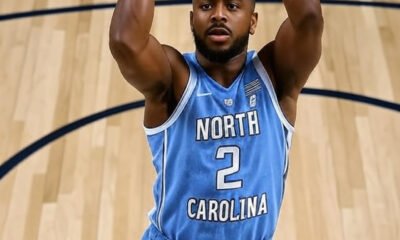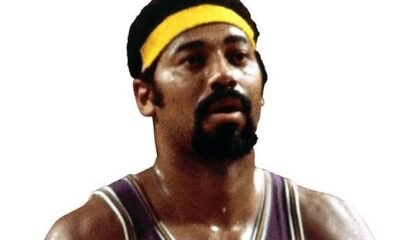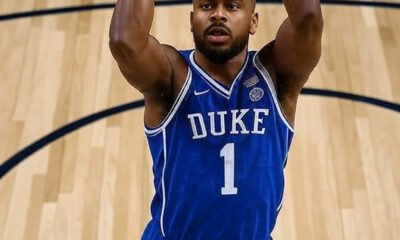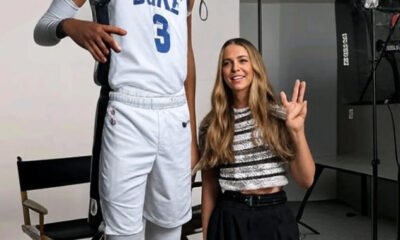Blog
Breaking: Florida Gators just made a $50 million deal with the No.1 player in America today
Breaking News: Florida Gators Secure Historic $50 Million Deal with Top NCAA Player, Setting New Standard in College Sports
In a groundbreaking move that is poised to redefine the landscape of college athletics, the Florida Gators have announced a monumental contract with the nation’s top-ranked high school football player. Valued at an astonishing $50 million, this deal marks a new era where the boundaries of amateur sports are blurred, and the financial stakes are raised to unprecedented heights.
**A Historic Acquisition**
The athlete, whose name is already making waves across sports headlines, is widely regarded as the most talented and promising player in the country. His decision to commit to the Gators was closely watched, but the magnitude of this financial commitment took everyone by surprise. This is not just a recruitment; it’s a declaration that college programs are now willing to invest heavily to secure exceptional talent and, perhaps, to capitalize on the immense revenue potential that star players bring.
**Breaking Down the Deal**
While the specifics of the contract have yet to be fully disclosed, sources close to the negotiations reveal that it includes a combination of signing bonuses, performance incentives, and long-term endorsement opportunities. The $50 million figure is believed to encompass various components such as:
– **Signing Bonus:** A lump sum payable upon enrollment, reflecting the program’s commitment and the player’s value.
– **Performance Incentives:** Bonuses tied to achievements on the field, such as rushing yards, touchdowns, or leadership awards.
– **Endorsement Opportunities:** Early access to branding and endorsement deals, potentially involving national and global companies, which can significantly increase the overall value of the contract.
– **Educational Support:** While the financial aspect is dominant, the deal also emphasizes academic support, ensuring the athlete balances sports with education.
**Implications for College Sports**
This landmark deal raises critical questions about the future of college athletics, amateurism, and NCAA regulations. Traditionally, NCAA policies prohibited players from receiving compensation beyond scholarships, preserving the amateur status central to college sports. However, recent legal challenges and shifting attitudes have opened the door for athletes to monetize their talents.
The Florida Gators’ bold move signals a willingness to embrace a new model—one where top-tier athletes are treated more like professional signees than students. This could lead to a bidding war among major programs, fundamentally transforming recruitment, player loyalty, and the very essence of college sports.
**Legal and Ethical Considerations**
Critics argue that such financial enticements threaten to undermine the educational mission of college athletics, turning universities into high-stakes talent factories. There are concerns about fairness, with smaller programs and less affluent schools potentially being left behind, creating a widening gap in competitive balance.
Moreover, questions about player eligibility, agent involvement, and the potential for exploitation are at the forefront of ongoing debates. The NCAA is under increasing pressure to update its rules to accommodate the realities of modern college sports while safeguarding student-athletes’ welfare.
**Economic Impact and Commercialization**
From a business perspective, this deal exemplifies the commercialization of college sports. With massive TV deals, merchandise sales, and sponsorships, college programs are now seen as lucrative enterprises. Securing a top athlete with a $50 million deal is a strategic move to boost the program’s visibility, attract more fans, and generate revenue.
The Florida Gators’ investment could also influence other programs to follow suit, leading to a market-driven approach where athletic talent is bought and sold much like professional sports. This shift might increase the overall revenue generated by college football but also raises questions about the sustainability and integrity of the sport.
**The Player’s Perspective**
For the athlete involved, this deal offers a unique opportunity to capitalize on his talents and secure his financial future before entering the professional ranks. It reflects a recognition of his potential impact on the field and the marketability he brings.
At the same time, it places immense pressure on him to perform and uphold high standards, both academically and athletically. The athlete’s support system, including family, coaches, and advisors, will play a crucial role in navigating this new landscape.
**Reactions Across the Sports World**
The sports community is abuzz with reactions to this historic deal. Some see it as a positive step toward fair compensation for college athletes who generate billions in revenue. Others worry it might lead to increased inequality, corruption, and a loss of the pure amateur spirit that has long defined college sports.
Former players, coaches, and analysts are weighing in with diverse opinions. Many acknowledge that change is inevitable, but emphasize the importance of establishing regulations that protect athletes’ rights and ensure fairness.
**Looking Ahead**
As the Florida Gators prepare to welcome their new star, the broader implications of this deal will undoubtedly unfold in the coming months and years. It may prompt legislative action from the NCAA, state governments, or court rulings that shape the future of college athletics.
The deal also raises important societal questions about youth sports, education, and the commercialization of college programs. Will this lead to a new professional pipeline, or will it create a divide where only the wealthiest programs can afford to attract top talent?
**Conclusion**
The $50 million deal between the Florida Gators and the No.1 player in America is more than just a contract; it’s a seismic shift in the landscape of college sports. It challenges traditional notions of amateurism, highlights the growing influence of commercialization, and underscores the value placed on athletic talent in today’s society.
As fans, students, and stakeholders watch this story unfold, one thing is clear: the game is changing. Whether for better or worse, this historic moment will be remembered as a pivotal point in the evolution of college athletics, signaling a future where financial might and athletic excellence intertwine more deeply than ever before.
-

 Arsenal2 years ago
Arsenal2 years agoSad News Arsenal ex player who is goal scorer confirmed dead this morning
-
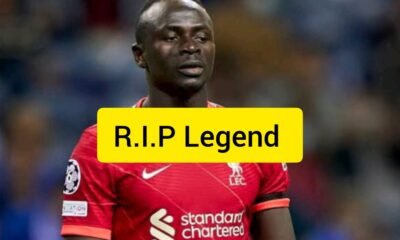
 Liverpool2 years ago
Liverpool2 years agoSad News Sadio Manè Confirmed Dead Today By Sky Sports Reporters, Open For Full Story 👇
-
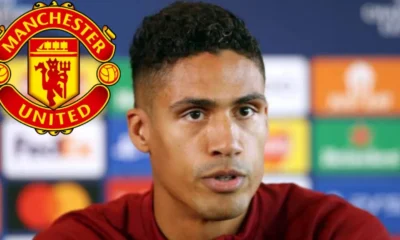
 Blog1 year ago
Blog1 year ago“I was forcefully removed from Manchester United squad and now I’ve joined the best team in the world…I will revenge and as a result, I’ve ordered my friend who’s their best player currently to leave there with immediate effect and he has agreed”: Former Man United player angered by United decision to removed him from the squad as he ordered the Club’s best player to leave immediately.
-

 Blog1 year ago
Blog1 year agoSad News: Manchester United player died when playing for his country England yesterday 😢 😔
-

 Blog2 years ago
Blog2 years agoR.I.P: Formal Real Madrid and France international confirm death this morning
-

 Chelsea2 years ago
Chelsea2 years agoBreaking New:”Roman Abramovich could get Chelsea back”? Chelsea owner review the conversation between him and Roman Abramovich in. Deal about getting Chelsea back
-

 Blog2 years ago
Blog2 years agoUNBELIEVABLE: Manchester City midfielder KELVIN DE BRUYNE divorced wife this morning after DNA test revealed their 5 years old son belongs to formal Manchester United player
-
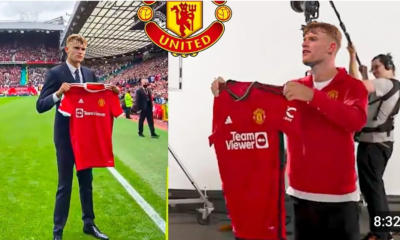
 Manchester United1 year ago
Manchester United1 year agoOFFICIAL NOW: Manchester United announce the signing of 23yr sensational player after beating Liverpool and Madrid for His signature, agreement reached on a 5yr deal, Medical completed – announcement ongoing



